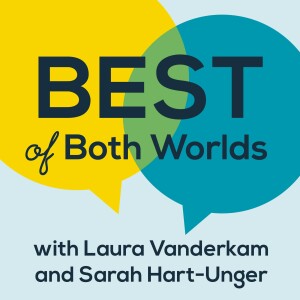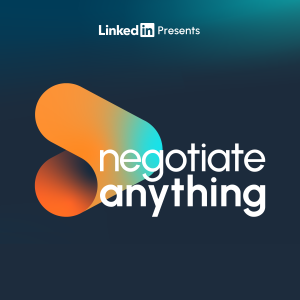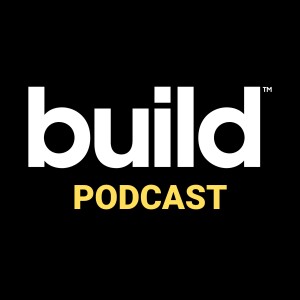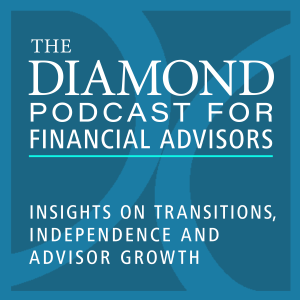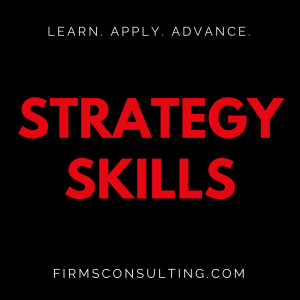

The Strategy Skills Podcast: Strategy | Leadership | Critical Thinking | Problem-Solving
https://strategyskills.libsyn.com/rssEpisode List

609: UCLA Professor and MD on How Gravity Shapes Your Health and Mind
Dr. Brennan Spiegel, Director of Health Services Research at Cedars-Sinai and Professor of Medicine and Public Health at UCLA, author of the book Pull, explains why illness is often a failure to manage gravity. He describes how our relationship with gravity defines strength, balance, digestion, mental stability, and emotional health. Take the Gravotype Quiz at BrennanSpiegelMD.com to identify how your body manages gravity. Key Insights and Action Steps — Dr. Brennan Spiegel "Every single cell of your body evolved from this force of gravity. Physics came first, and biology came second." Illness arises when we fail to manage gravity. Every organ, tendon, and cell depends on that relationship. "When you stand up straight and lift your diaphragm, it pulls up this sack of potatoes that we all have in our belly. When you open up the gut, it opens up digestion." Posture determines how well the gut, diaphragm, and circulation function. Sitting compresses digestion and lowers energy. "Your balance and relationship to gravity is a predictor of how long you're going to live." Balance, grip strength, and posture are measurable indicators of longevity. "The inner ear is like a gyroscope constantly keeping track of your position in relation to gravity." The nervous system continuously measures gravity. Inner-ear disturbances can create dizziness, anxiety, and panic. "When you're depressed, you can't get up out of bed. Your body is slumped over. It's almost like there's so much gravity pulling on your body, it's like you're in a black hole." Depression mirrors an excessive gravitational load. Emotional heaviness is a physical experience of being pulled down. "Strong negative emotional experiences can permanently change the way the brain forms… the mind has learned to be pulled down emotionally, physically, socially." Childhood trauma reshapes how the brain perceives gravity, making the body feel heavier and slower to rise. "The feet are a gravity management surface… only five percent of the body's surface area but holding one hundred percent of the weight." Feet are the interface between body and planet. Strengthening them restores alignment and balance. "Your relationship to the planet, both latitudinally and altitudinally, will determine your health." Altitude, light, and environment influence serotonin, immunity, and microbiome function. "Serotonin itself is a gravity management substance." Serotonin regulates mood and physical stability, linking emotional and gravitational balance. "When it's stimulated, it activates the rest and digest phase and helps release serotonin." The vagus nerve is the primary connection between body and mind, calming the system and improving serotonin flow. "I pretended I was on a bigger planet… I became stronger and stood up straighter." Carrying additional resistance through weighted movement improves posture, strength, and metabolism. "When we lay down to sleep, we give our body a break… the blood easily flows into our brain and flushes out amyloid." Sleep restores gravitational equilibrium and supports brain recovery. "Gravity doesn't change, but your relationship to gravity does." Long-term health depends on strengthening that relationship physically, mentally, and emotionally. Action Items from Dr. Brennan Spiegel 1. Identify your gravotype. Take the 16-question quiz at BrennanSpiegelMD.com to learn which of the eight gravotypes you belong to and how your body manages gravity. 2. Build gravity fortitude. Strengthen the muscles and bones that keep you upright — especially your back, core, and legs. "When you stand up straight and lift your diaphragm, it pulls up the gut and opens digestion." 3. Stand tall and move often. Avoid long hours of sitting. Use a standing desk or take frequent standing breaks. Sitting compresses the abdomen, slows digestion, and reduces serotonin. 4. Strengthen the diaphragm and posture daily. Practice standing with shoulders back and chin level to engage the diaphragm and improve breathing and gut function. 5. Train your balance. Test and improve balance by standing on one leg, walking heel-to-toe, or using a balance board. "Your balance and relationship to gravity is a predictor of how long you're going to live." 6. Practice grip and hanging strength. Hang from a bar daily. Aim for 30 seconds, then increase gradually toward 2 minutes. Even short "dead hangs" improve shoulder, spine, and nervous-system alignment. 7. Use light weighted resistance. Try a weighted vest or light ankle weights while walking or doing chores. "I pretended I was on a bigger planet… I became stronger and stood up straighter." 8. Walk, run, or train barefoot or in minimalist shoes (safely). Let the feet feel the ground to activate stabilizing muscles. "When you ground your foot, everything else pulls up straight from there." 9. Reconnect with the ground. Spend time standing or walking on natural surfaces (grass, sand, earth) when possible. 10. Stay hydrated. Keep enough fluid in your body to "pump blood and oxygen up into the brain." Dehydration weakens gravity tolerance and causes dizziness or fatigue. 11. Regulate the nervous system. Do slow, controlled breathing through pursed lips to stimulate the vagus nerve and calm the body. "Slow meditative breathing activates the rest-and-digest phase." 12. Consider gentle vagus-nerve stimulation. Use only safe methods such as breathing, humming, or medical devices under supervision. Avoid carotid massage unless advised by a doctor. 13. Strengthen vestibular and proprioceptive awareness. Engage activities that challenge coordination: yoga, dance, gymnastics, tai chi, or balance training. 14. Manage mental gravity. Notice emotional heaviness as a physical sensation; practice posture, breathing, and grounding to counteract "mental black holes." 15. Use awe and nature to elevate mood. Spend time in nature, watch sunsets, or listen to music that evokes awe. "Feeling part of something greater than yourself elevates mood and serotonin." 16. Increase natural serotonin. Seek sunlight, exercise outdoors, connect socially, and reduce processed foods. Serotonin helps both mood and muscle tone to "fight gravity physically and mentally." 17. Optimize sleep for gravitational recovery. Sleep 7–8 hours flat or slightly inclined if you have reflux. Avoid heavy meals within 2 hours of sleep. Limit screens before bed. "When we lay down to sleep, we give our body a break… the blood easily flows into our brain." 18. Manage reflux and digestion. If prone to reflux, raise the head of the bed about 10 degrees or use a wedge pillow. Sleep on your left side to reduce acid reaching the esophagus. 19. Support circulation through movement. Use your muscles as pumps, walk regularly, stretch calves, and move legs during travel or desk work to prevent stagnation. 20. Avoid chronic compression. Reduce time bent over laptops or phones; keep screens at eye level to protect diaphragm and digestion. 21. Engage with natural environments. Nature exposure increases serotonin and improves gravity resilience. "Being in green spaces is mood-elevating because that's what we evolved with." 22. Monitor environment and altitude. If you live or work at high altitude, be mindful of mood or sleep changes and adjust oxygen exposure and sunlight time. 23. Balance convenience with movement. Spiegel warns that modern comfort, constant sitting, processed food, artificial environments, represents "our species losing the battle against gravity." 24. Reframe health. Adopt the mindset that "gravity doesn't change, but your relationship to gravity does." Everything, from mood to digestion, is part of managing that relationship. Get Brennan's book, Pull, here: https://shorturl.at/XjNt3 Claim your free gift: Free gift #1 McKinsey & BCG winning resume www.FIRMSconsulting.com/resumePDF Free gift #2 Breakthrough Decisions Guide with 25 AI Prompts www.FIRMSconsulting.com/decisions Free gift #3 Five Reasons Why People Ignore Somebody www.FIRMSconsulting.com/owntheroom Free gift #4 Access episode 1 from Build a Consulting Firm, Level 1 www.FIRMSconsulting.com/build Free gift #5 The Overall Approach used in well-managed strategy studies www.FIRMSconsulting.com/OverallApproach Free gift #6 Get a copy of Nine Leaders in Action, a book we co-authored with some of our clients: www.FIRMSconsulting.com/gift

608: Harvard Professor and former CEO of Medtronic, Bill George, on How Leaders Should Manage Challenging Times
Bill George, former CEO of Medtronic and Harvard Business School Executive Fellow, explains how leaders can stay grounded, principled, and effective in chaotic times. "It's a world of chaos and it requires a very different kind of leader than in more stable times." The skills that once mattered (process control, long-term plans) are now secondary to courage, self-awareness, and moral clarity. George says most executives still lead comfortably "inside the walls" but fear the external world (media, public scrutiny, and rapid change). "Today, if you're a leader, you are a public figure. You have to face that reality." Leadership now starts with knowing your True North, your values and principles. "When everything's going your way, you start to think you're better than you are. When you lose, you learn your weaknesses." He warns: "The people who will struggle are those faking it to make it. They're trying to impress the outside world but aren't grounded inside." Purpose, not position, defines identity. "A CEO once said, 'Without a title, I'm nothing.' You won't hold that title forever. Who are you then?" True fulfillment comes from alignment between personal purpose and work. "Every business has a deep sense of purpose if it's well run. The ones that only make money, like GE, go away." He lists five traits of leaders who thrive in crisis: Face reality. Stay true to values. Adapt strategies fast. Engage your team. Go on offense when others retreat. Each requires courage. "You can't teach courage in a classroom. It has to come from within." He urges humility: "Leadership is all about relationships, it's a two-way street." His turning point came when he stopped "building a résumé" and started building people. He defines authentic leadership as growth through feedback: "I never walk into a classroom unless I'm going to learn from everyone there." And he closes with the core message: "You don't have to be CEO. If you can do great work and help others, you'll feel fulfilled. Leaders make the difference between success and failure." Key Insights (Verbatim Quotes) 1. Chaos demands a new kind of leader. "It's a world of chaos and it requires a very different kind of leader than in more stable times." 2. Authenticity starts with grounding. "Our true north is our principles, our beliefs, and our values all rolled into one." 3. Titles are temporary. "I am not the CEO of Best Buy. …That's the title I hold. I won't hold that forever." 4. Courage separates real leaders. "You can't teach courage in a classroom. It has to come from within." 5. Purpose drives resilience. "Every business has a deep sense of purpose if it's well run." 6. Leadership is relational. "I was building a résumé, not relationships. Leadership is all about relationships." 7. Fear destroys authenticity. "A lot of people are living in fear. That's no way to live your life." 8. Great leaders empower others. "You want everyone on your team to be better than you are at what they do." 9. Growth never ends. "Anyone who's authentic knows they have to continue to grow as a human being." 10. True success is internal. "You'll never have enough power, fame, or money. You find fulfillment within." Action Items "Face reality, starting with yourself." Look in the mirror and ask, "Maybe I'm creating this negative culture. What did I do wrong?" "Stay true to your purpose and your values." Never abandon principles when pressure rises. "Adapt your strategies and tactics." What worked yesterday may not work today. "Get your team involved." Say, "Hey guys, we've got a real problem. What ideas do you have to keep it going?" "Go on offense when everyone else is pulling back." Make bold moves when others retreat. "Have the courage to look yourself in the mirror." Courage starts with self-reflection. Ask, "What's the worst case? What do I have to lose?" and move forward without fear. "If one door closes, maybe another one's going to open that I never even saw." "Know who you are." Reflect on your life story, relationships, and crucibles that shaped you. "Don't get caught up in titles or money." Remember, "Without a title I'm nothing" leads nowhere. "Find a congruence between your purpose and the organization's purpose." "Every business has a deep sense of purpose if it's well run." Identify how yours helps people. "Get away from toxic leaders." If they drive you down, take credit for your work, or never support you, move on. "Work for people you feel really good about working with." "Learn all aspects of the business and how to integrate them creatively." "Pull together a cross-disciplinary team" and act as the integrator. "Have everyone on your team be better than you are at what they do." "Be the glue." Integrate experts to solve tough problems. "Care about your people first." They must know you care before they'll perform. "Get everyone into their sweet spot" — where they use all their skills and are highly motivated. "Align everyone around purpose and goals." "Challenge people to reach their full potential." Say, "I know you can do better. Let's take your game to the next level." "Get out there and be with the people." Don't hide behind PowerPoints. "Help your people do better." Work beside them. "Believe in someone who doesn't believe in themselves." Tell them, "You have this potential. Go for it." "Find someone who believes in you." A mentor, boss, or spouse who sees your potential. "As a leader, be that person who believes in others." "Face your blind spots." Ask people who care about you for honest feedback. "If you get feedback from people that care about you, take it in." "Stop building a résumé and start building relationships." "Take time for people. Ask, 'How are you doing today? What challenges are you facing?'" "Leadership is all about relationships — it's a two-way street." "Tell the truth — the good, the bad, and the ugly." "Stay away from blame." Take responsibility instead of pointing fingers. "Be transparent." Don't hide problems; fix them. "Never fake it to make it." "Keep growing as a human being." "Take feedback and adapt." Growth requires awareness of impact on others. "Believe in yourself even if you fail." Failure is learning. "Spend time reflecting on your purpose and the person you are becoming." "Help other people reach their full potential." "Measure success by how many people you help every day." "Remember: leadership is about who you are, not what title you hold." Get Bills book, True North, here: https://shorturl.at/bRXsK Claim your free gift: Free gift #1 McKinsey & BCG winning resume www.FIRMSconsulting.com/resumePDF Free gift #2 Breakthrough Decisions Guide with 25 AI Prompts www.FIRMSconsulting.com/decisions Free gift #3 Five Reasons Why People Ignore Somebody www.FIRMSconsulting.com/owntheroom Free gift #4 Access episode 1 from Build a Consulting Firm, Level 1 www.FIRMSconsulting.com/build Free gift #5 The Overall Approach used in well-managed strategy studies www.FIRMSconsulting.com/OverallApproach Free gift #6 Get a copy of Nine Leaders in Action, a book we co-authored with some of our clients: www.FIRMSconsulting.com/gift

607: Raj Sisodia on Conscious Capitalism and How Business Can Heal the World
Raj Sisodia has spent his life asking one question: Can business make people's lives better instead of draining them? He holds a PhD in Marketing and Business Policy from Columbia University, co-founded Conscious Capitalism with John Mackey, the founder of Whole Foods Market, and has advised global companies from Tata Group to AT&T. But his path started in a factory in Bombay, earning a hundred dollars a month, before he built one of the most influential ideas in modern business thinking. "I didn't like biology, so I became an engineer. I didn't like finance, so I became a marketing professor. But business turned out to be about head and wallet — nothing about heart or spirit." That realization led him to study companies that people love working for and trust buying from. The result became Conscious Capitalism — a way of running a business that joins purpose, profit, and care. "Profit is the oxygen that keeps you alive. But no human lives just to make red blood cells. In the same way, no company should live just to make profit." Raj's research showed that companies built on four simple pillars — Purpose, Stakeholders, Conscious Leadership, and Caring Culture — outperformed the S&P 500 by nine to one over a decade. They made more money precisely because they cared more. When he met Bob Chapman, a manufacturing CEO from Missouri, Raj saw these ideas come alive. Chapman bought a failing plant, promised no layoffs, and told workers they would figure it out together. Men who had once been laid off without warning wept as they told Raj their lives had changed. "I had sixty dollars in the bank and a new baby. That job saved my family." From that came the book Everybody Matters. Chapman told him, "Leadership is the stewardship of the lives entrusted to us." Raj calls such companies healing organizations — places that reduce suffering and bring more joy into the world. Now, with artificial intelligence reshaping work, Raj argues that AI will amplify our intentions: "A knife in a surgeon's hand saves lives. The same knife in another hand can end one. AI is the same — it depends on who we are when we use it." He believes the leaders who thrive will be those who bring consciousness to technology, not fear. 💡 Insights and Actions Define a higher purpose. Ask, "Why do we exist beyond making money?" Make everyone win. Measure success by how you touch the lives of people. Use AI with awareness. Let it amplify compassion, not just efficiency. Lead with care. "Leadership is stewardship of lives." Grow to serve, not to consume. "When business heals, people and profits both rise." "You cannot have a healing organization without a leader who heals themselves first." When capitalism grows a conscience, it outperforms the old model and gives people back their dignity at work. Get Raj's book, Conscious Capitalism, here: https://tinyurl.com/yp2r8a2r Claim your free gift: Free gift #1 McKinsey & BCG winning resume www.FIRMSconsulting.com/resumePDF Free gift #2 Breakthrough Decisions Guide with 25 AI Prompts www.FIRMSconsulting.com/decisions Free gift #3 Five Reasons Why People Ignore Somebody www.FIRMSconsulting.com/owntheroom Free gift #4 Access episode 1 from Build a Consulting Firm, Level 1 www.FIRMSconsulting.com/build Free gift #5 The Overall Approach used in well-managed strategy studies www.FIRMSconsulting.com/OverallApproach Free gift #6 Get a copy of Nine Leaders in Action, a book we co-authored with some of our clients: www.FIRMSconsulting.com/gift

606: CEO Readiness: How Boards Decide Who Gets the Top Job
Byron Loflin, Global Head of Board Advisory at Nasdaq and co-author of CEO Ready, explained on the Strategy Skills Podcast why many talented executives never make it to the top. " Because you perform well isn't going to automatically get you the job." Boards are looking for more than results. They look for humility, curiosity, and authentic relationships across stakeholders. Byron shared a personal lesson from riding with Ronald Reagan before he was president: "He was genuinely interested in others. And that surprised me. I didn't get the sense that he was a pompous or aristocratic kind of person. He was genuinely interested in identifying what are you interested in? What makes you tick?" He also warned that unchecked ego is one of the biggest risks to leadership: "Ego is a powerful motivator when it's focused properly. But when it becomes dominant in one's personality and drives inappropriate types of responses to the needs of others… Ego can become a significant problem." To counter ego, he recommended building close, truth-telling relationships. This is what Byron said about conversations with his children: "I listen to them very closely when they speak to me and I invite them to speak truth into my life." And he reminded us that succession is political: "Surprise is the enemy. Structure is your friend." Finally, boards now expect leaders to be fluent in technology and disruption: "The expectation of management delivering understanding on the relevancy of AI to your organization with the emphasis on relevancy." Actions you can take now Seek feedback aggressively. Create a circle of truth-tellers: colleagues, mentors, even family, who will tell you the truth. Check your ego daily. Build humility into routines by asking: "Am I genuinely interested in others, or focused only on myself?" Engage all seven stakeholders. Byron identified investors, employees, vendors, customers, communities, regulators, and the environment as decisive. Map your relationships and strengthen the weakest link. Signal reliability to boards. Remove surprises. Show discipline in how you work and how you communicate. Become AI-fluent. Don't chase every trend. Focus on the relevancy of AI and digital disruption to your business and be prepared to explain it clearly. Get Byron's book, CEO Ready, here: https://tinyurl.com/z87xz94h Claim your free gift: Free gift #1 McKinsey & BCG winning resume www.FIRMSconsulting.com/resumePDF Free gift #2 Breakthrough Decisions Guide with 25 AI Prompts www.FIRMSconsulting.com/decisions Free gift #3 Five Reasons Why People Ignore Somebody www.FIRMSconsulting.com/owntheroom Free gift #4 Access episode 1 from Build a Consulting Firm, Level 1 www.FIRMSconsulting.com/build Free gift #5 The Overall Approach used in well-managed strategy studies www.FIRMSconsulting.com/OverallApproach Free gift #6 Get a copy of Nine Leaders in Action, a book we co-authored with some of our clients: www.FIRMSconsulting.com/gift

605: Harvard Economist John Campbell on How to Stop Losing Money to a Broken Financial System
John Campbell, Professor of Economics at Harvard University and co-author of Fixed, joined the Strategy Skills Podcast to explain why the financial system often works against ordinary investors and how to make better personal-finance decisions. After decades studying markets and investor behavior, Campbell saw a pattern: even educated, high-income earners routinely make avoidable mistakes in housing, saving, and investing. "Once I started looking at how people actually behave, I became more and more aware of how pervasive mistakes are, people are just leaving money on the table." Those mistakes compound over time, widening inequality. "It's what economists call a cross-subsidy, from the poor to the rich. My co-author Tarun and I feel that this is really outrageous and we should be concerned about it." Five Key Insights 1. Financial Mistakes Compound Inequality Campbell's research shows that even when borrowers start on equal terms, inaction and misunderstanding drive divergence. "Black borrowers are paying maybe as much as half a percentage point more on average than white borrowers… and that's just because they haven't refinanced." Behavioral gaps like failing to refinance when rates fall transfer wealth upward. 2. Housing Choices Are Often Poorly Understood Many treat property as guaranteed wealth rather than a productive asset. "It's a huge mistake to buy a bigger house than you need, or even more so to buy a place and then let it sit empty… you're effectively buying an asset and then throwing away the dividend on that asset." Unused or oversized housing drains capital that could compound elsewhere. 3. Early-Career Risk-Taking Is Underrated "Most people, when they're young, have a very large hidden asset, their earning power. For most people, that earning power is far safer than the stock market." Because human capital is relatively stable, young investors can afford higher equity exposure and should taper risk only as retirement approaches. 4. Target-Date Funds Don't Go Far Enough "Most target date funds are not aggressive enough early in life, and they taper down the risk taking too gradually." Campbell argues these default products should adjust risk more sharply and reflect each investor's actual wealth trajectory. 5. Complexity Creates Confusion and Inequality "This profusion of accounts leads to confusion. People throw up their hands. And the access to these accounts is unequal." The U.S. system's overlapping account types favor large employers and the financially literate, leaving others behind. Actions You Can Take Now 1. Maximize any employer match immediately. "Certainly any kind of employer match, you want to maximize that right away." 2. Save aggressively through tax-favored accounts. "You should be saving aggressively and you should be maximizing your use of tax-favored accounts." 3. Manage your mortgage strategically. "Managing your mortgage is also a very important thing for people in the middle class and upper middle class." 4. Consider adjustable-rate mortgages as efficient leverage if you can manage the risk. "The cheapest way to lever that portfolio and be involved in risky markets actually in many cases is to use an adjustable-rate mortgage… a cheap way to take leverage." 5. Use home equity as flexible credit. "Home equity is a valuable source of credit." 6. In retirement, spend your assets, don't hoard them. "Many people hang on to their financial assets too long and are too reluctant to tap home equity. The right way to manage retirement is a mix of annuities and reverse-mortgage borrowing… so that you can enjoy it." 7. Avoid oversized or idle property. "If you buy an asset and then throw away the dividend, you should not expect it to deliver a high return." 8. Take more financial risk when young; scale back later. Treat your earning power as your built-in "safe asset." 9. Build an emergency fund before investing. "It should be a priority to have an emergency fund in a safe and liquid form so that you stay out of high-cost debt." 10. Support simpler, fairer financial design. "We think the financial system is very important for the market economy and the unpopularity of finance is really bad. We're trying to save the financial industry for itself." Get John's book, Fixed, here: https://tinyurl.com/bdhj5zvd Claim your free gift: Free gift #1 McKinsey & BCG winning resume www.FIRMSconsulting.com/resumePDF Free gift #2 Breakthrough Decisions Guide with 25 AI Prompts www.FIRMSconsulting.com/decisions Free gift #3 Five Reasons Why People Ignore Somebody www.FIRMSconsulting.com/owntheroom Free gift #4 Access episode 1 from Build a Consulting Firm, Level 1 www.FIRMSconsulting.com/build Free gift #5 The Overall Approach used in well-managed strategy studies www.FIRMSconsulting.com/OverallApproach Free gift #6 Get a copy of Nine Leaders in Action, a book we co-authored with some of our clients: www.FIRMSconsulting.com/gift
You may also like
Create Your Podcast In Minutes
- Full-featured podcast site
- Unlimited storage and bandwidth
- Comprehensive podcast stats
- Distribute to Apple Podcasts, Spotify, and more
- Make money with your podcast


